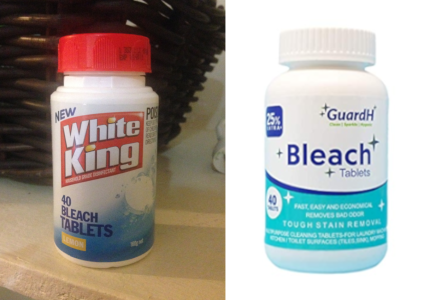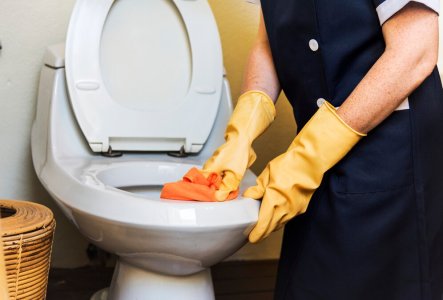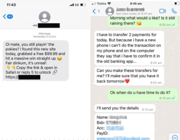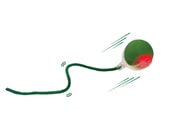Plumber Reveals Unexpected Product That Could Be Destroying Your Toilet!
By
- Replies 14
We all want a sparkling clean toilet, but your tried and tested cleaning method could be destroying your porcelain throne. Bleach tablets are a popular choice for toilet cleaning, but a plumbing company has revealed this 'quick fix' could be doing irreparable damage.
Bleach tablets are a multi-purpose fixture in cleaning cupboards, promising to kill up to 99.9% of germs when used to disinfect surfaces. This convenience makes them a tempting choice for cleaning toilets – just drop one in, and you’re done.
However, with this 'quick fix' comes hidden dangers. Mr. Rooter Plumbing Company has revealed that bleach tablets can corrode pipes and dissolve your toilet's plastic, rubber gaskets, and washers. 'The longer the tablet sits, the longer its chemicals chip away at your toilet's materials.’
Every time the toilet is flushed, bacteria, minerals, and contaminants escape into the water tank. Over time, this can build up and damage your toilet, triggering corrosion that won't resolve itself. Toilet blockages and difficulty flushing can also result from the tablets, as they don't always dissolve completely in the water.
The use of bleach tablets could even lead to financial costs down the line. The warranty may be voided if corroded toilets have been cleaned with bleach tablets, leaving you with pricey repairs. The good news is that you don't need to replace your whole toilet to keep things clean.
For starters, be sure to replace your toilet brush regularly; worn-out bristles won't do as thorough a job, which can lead to bacteria build-up. Invest in a cleanser specifically designed for toilets, which should safely remove any hard water build-up or bacteria.
If you’re looking for an eco-friendly and affordable alternative to bleach tablets, try distilled white vinegar. Not only is it kinder to your pipes, but it's also highly effective at removing stains. Regular cleaning is also essential. Use a toilet brush to thoroughly scrub the inside of the bowl, and for tough stains, leave a solution of vinegar and bicarb soda to soak for 10-20 minutes before washing off. For the outside and lid, simply wipe with a damp cloth and disinfectant.

With a little extra effort, you'll be rewarded with gleaming, bacteria-free porcelain that won't be broken easily due to the effects of harsh chemicals. Along with being budget friendly, you can take some pride in knowing you've kept your toilet shiny and safe while avoiding any potentially costly repairs. What do you think, members? Let us know your thoughts in the comments below!
Bleach tablets are a multi-purpose fixture in cleaning cupboards, promising to kill up to 99.9% of germs when used to disinfect surfaces. This convenience makes them a tempting choice for cleaning toilets – just drop one in, and you’re done.
However, with this 'quick fix' comes hidden dangers. Mr. Rooter Plumbing Company has revealed that bleach tablets can corrode pipes and dissolve your toilet's plastic, rubber gaskets, and washers. 'The longer the tablet sits, the longer its chemicals chip away at your toilet's materials.’
Every time the toilet is flushed, bacteria, minerals, and contaminants escape into the water tank. Over time, this can build up and damage your toilet, triggering corrosion that won't resolve itself. Toilet blockages and difficulty flushing can also result from the tablets, as they don't always dissolve completely in the water.
The use of bleach tablets could even lead to financial costs down the line. The warranty may be voided if corroded toilets have been cleaned with bleach tablets, leaving you with pricey repairs. The good news is that you don't need to replace your whole toilet to keep things clean.
For starters, be sure to replace your toilet brush regularly; worn-out bristles won't do as thorough a job, which can lead to bacteria build-up. Invest in a cleanser specifically designed for toilets, which should safely remove any hard water build-up or bacteria.
If you’re looking for an eco-friendly and affordable alternative to bleach tablets, try distilled white vinegar. Not only is it kinder to your pipes, but it's also highly effective at removing stains. Regular cleaning is also essential. Use a toilet brush to thoroughly scrub the inside of the bowl, and for tough stains, leave a solution of vinegar and bicarb soda to soak for 10-20 minutes before washing off. For the outside and lid, simply wipe with a damp cloth and disinfectant.
Key Takeaways
- A plumbing company has warned against the use of bleach tablets for toilet cleaning, stating that they can corrode the pipes, plastic, washers and rubber gaskets.
- The company cautioned that over time, the bleach tablets could result in frequent leaks and hinder the proper functioning of the toilet.
- Many Australian warranties can be voided if bleach tablets are found to have interfered with the toilet's functionality.
- The plumber suggested alternatives for cleaning toilets effectively, including using a toilet-specific cleanser and cleaning regularly with distilled white vinegar.
With a little extra effort, you'll be rewarded with gleaming, bacteria-free porcelain that won't be broken easily due to the effects of harsh chemicals. Along with being budget friendly, you can take some pride in knowing you've kept your toilet shiny and safe while avoiding any potentially costly repairs. What do you think, members? Let us know your thoughts in the comments below!









